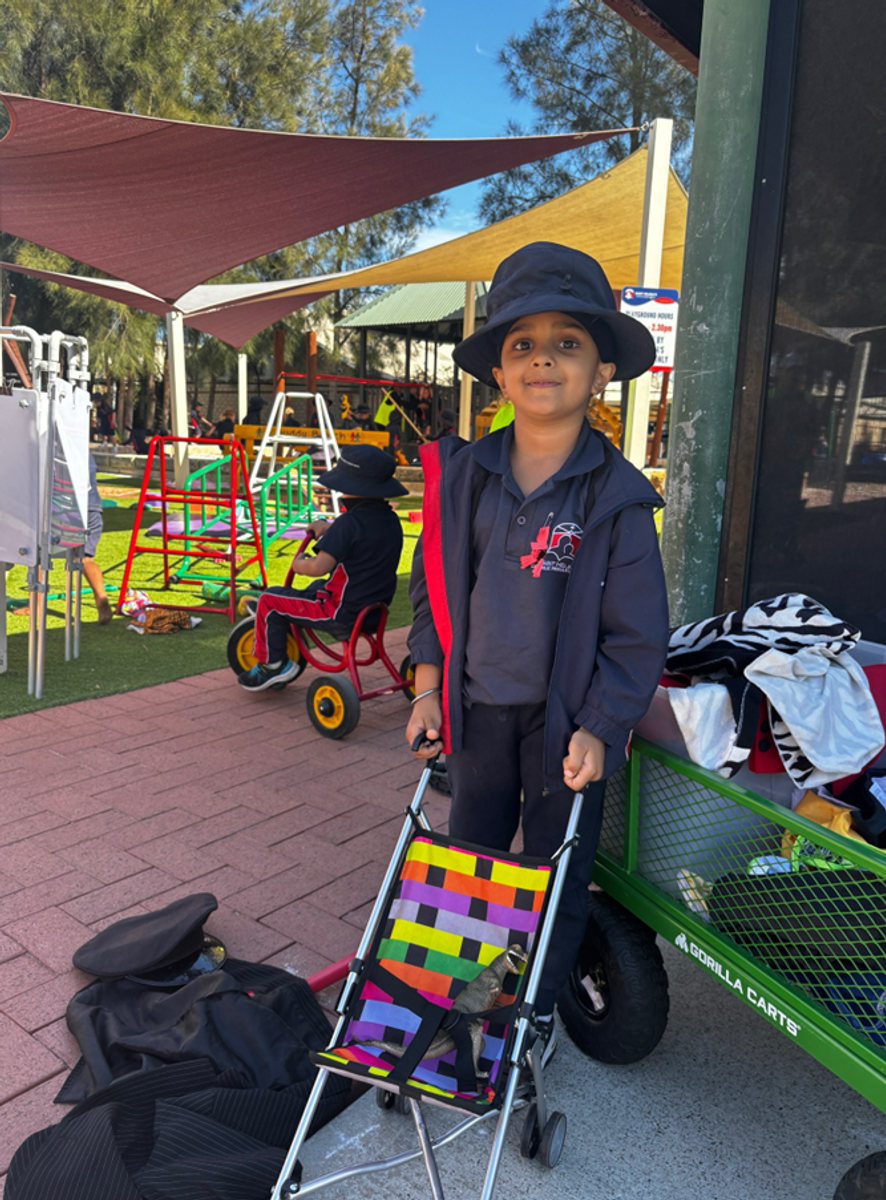Early Childhood News
(Pre-Kindy to Year 2)

Early Childhood News
(Pre-Kindy to Year 2)


Dolls have been much loved toys in classrooms and homes around the world for thousands of years. Doll play is pretend play where children pretend ‘as if’ the doll is real and re-enact scenes and scenarios that they have observed. For example, they might pretend to feed the doll by placing a spoon to the dolls mouth, or wrap it up in their favourite blanket and put it to bed.
When children play with dolls, they often engage in role-playing scenarios that mimic real-life situations. This type of play helps them learn essential social skills such as sharing, taking turns, and cooperating with others. It also introduces them to concepts of kindness and caring for others. You may have overheard your child sounding suspiciously like yourself when playing with a doll - we definitely hear ourselves mimicked when children play with dolls in the classroom, “Caring hands!”
Dolls provide children with an outlet for expressing emotions and processing experiences. Through imaginative play, children can project their feelings and explore complex emotions in a safe and controlled manner. This practice helps them develop empathy and understand different perspectives. Children often enjoy being the caregiver to their doll as it gives them control in situations that they may not normally have control over. An example of this is when children fix their doll’s sore leg, or provide their doll with medicine to make it feel better. Playing with dolls can also prepare for or help children to accept a new sibling joining the family.
Playing with dolls also encourages children to talk, whether they're chatting with their doll or narrating a scenario to their peers. This can also help expand their vocabulary, improve their language skills, and enhance their ability to articulate their thoughts and ideas. Dolls inspire imaginative play as children invent stories, scenarios, and characters when they interact with dolls. This type of open-ended play allows children to think critically and solve problems creatively. In a recent study by Cardiff University, solo doll play showed to light up the parts of the brain that allow children to develop social-emotional skills including, empathy.
Finally, Dolls come in different shapes, sizes, and ethnicities, which can help children see a reflection of themselves and their peers in the toys they play with. This representation promotes a sense of belonging and helps children appreciate and respect diversity. At St Helena’s, we place a degree of importance in ensuring the dolls in our classrooms vary in ethnicities and genders to ensure all children are represented in their toys.

